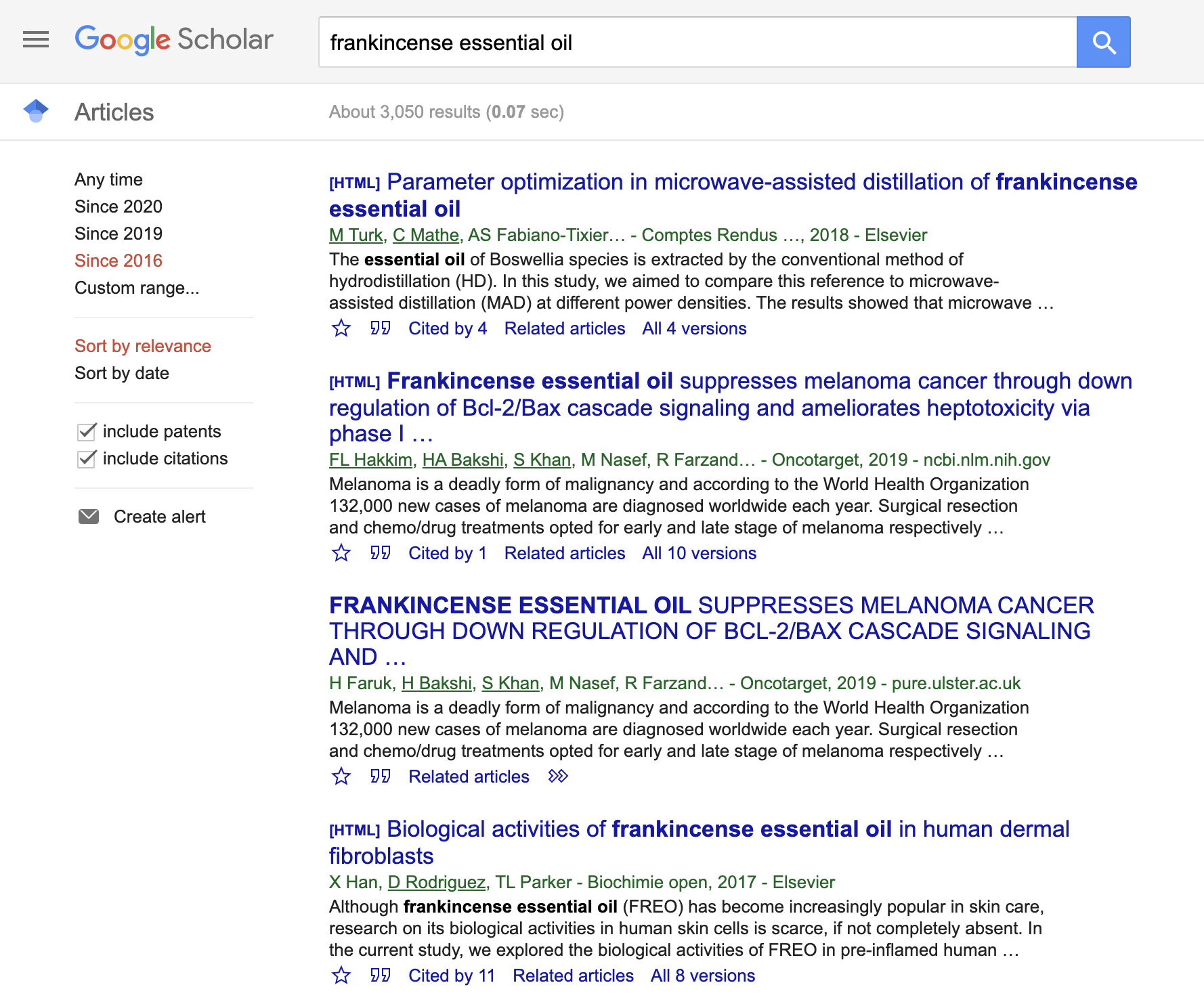Essential Oil Benefits: A Look at Specific Oils (pt. 1)
/Okay… now that I’ve clarified basic understanding of how essential oils are graded in my previous blog, I figured it’s easier to talk about the ones I’ve played with so far.
My friends at Ministry of Oils sell only 100% Grade A oils direct to consumer. They were kind enough to send me a sample pack of some of their favorite strands to learn more about.
Ministry of Oils is NOT an MLM company like many of the others. Plus, their prices are the best I’ve ever seen on Grade A essential oils.
That said… I fully stand by supporting them in this article and think you will love doing the same!
If you use my code FTF20 you’ll get a sweet 20% discount and I’ll get the affiliate money I use to pay for this website. Cool?
Alright. Let’s get into some of this research-backed shit.
The Benefits of Frankincense, Geranium, and Eucalyptus Essential Oils
Frankincense Essential Oil
I was stoked when I saw that Ministry of Oils sent me some of their Frankincense.
This is one of the few essential oils I’d heard solid health advice about before researching for this article. And let me tell you… some of those claims seemed fantastical.
I already touched on the cancer-fighting properties in my first article about essential oils. However, there are other new studies emerging that prove its effects against:
Chemoresistant triple-negative breast cancer (1)
Hepatocellular carcinoma (2)
Cancer stem cells (2)
Proliferation (spread) of dermal (skin) fibroblasts (3)
…and that’s just a few of the studies released on the subject since 2015.
Besides the potential for fighting certain types of cancer, frankincense has also shown to be effective in combating certain parts of the chronic disease cycle that can apply to others outside of cancer, too.
By that, I mean a huge portion of the cancer-fighting effects that have been studied have primarily been due to how frankincense seems to block parts of disease growth, such as the spreading or growth of a tumor
Thanks to this inhibition of damaging cell growth, a few other diseases frankincense seems to quell the effects of include (5):
Osteoarthritis
Multiple sclerosis
Asthma
Psoriasis
Erythematous eczema
Plaque-induced gingivitis
The same source that provided the list above (published in February of 2020) also noted that there were “only mild adverse side effects,” though it didn’t specify what those were.
The point is this: the medicinal and therapeutic possibilities of frankincense are vast and we’re just beginning to understand what they could all be.
And the studies out there are already numerous.
Go ahead, zoom around Google Scholar and filter for “studies since 2015” on the left for 10 minutes. You’ll be shocked at how many studies have come out in the last 5-ish years on frankincense and cancer cell death.
To say the least, I’m a huge fan of frankincense and include it in my daily essential oil use.
Geranium Essential Oil
Ahh, yes. Let’s shift to this slightly stinky flower for a minute.
Geranium has also been the star if quite a bit of recent research.
It turns out, this essential oil can help enhance the effects of frankincense’s cancer-fighting, as shown in a new study on its effect on breast cancer tumor progression (6).
Besides working with frankincense, geranium extract has some of its own capabilities outside of the cancer world.
Currently, geranium is being studied for its uses in:
Sun protection
Antioxidant activities (7)
Decreasing blood pressure
Decreasing heart rate (8)
When it comes to sun protection and antioxidant activities of geranium, it seems that these capabilities appear in geranium on its own but can be amplified by using it with calendula essential oil.
The study referenced in this article claims that the sun protection factor (SPF) of each geranium and calendula alone is effective. But there was a significant increase in SPF when the two were combined.
Between geranium and calendula, the latter has a stronger SPF on its own.
The second study cited here was done on mice, so more definitely needs to come from it.
However, this looked at the effects of inhaling small amounts (5µL / L) of geranium essential oil on the blood pressure and heart rate of a group of mice over 90 minutes.
The result was a significant decrease in both, implying that this same effect could be transferred to humans dealing with the same issues.
Sometimes, it’s hard to extrapolate mice studies to humans. But in this case, it seems promising because of the researchers’ ability to determine the exact brain pathways that the oil triggered to cause this effect in the mice.
The increase of linalool into the brain due to the inhalation of 5-10µL / L of geranium essential oil seems to be the key factor affecting this.
I know that was a lot of science there… but I wanted to include it for those interested.
The long & short is this: geranium essential oil shows a lot of promise as an accelerant of other essential oils’ properties, as well as having some of its own unique capabilities.
Eucalyptus Essential Oil
Eucalyptus essential oil is one of the most widely known essential oils out there.
Even if you don’t call it by its name, you probably know the smell. Think: Vick’s VapoRub. For me, that brings back thoughts of childhood colds and the accompanying, undeniable smell of that product.
That smell? Eucalyptus oil.
But are our thoughts on its efficacy for breathing easier backed by research? Here’s what I found.
Bad news first.
Though perceived stress is reduced when inhaling eucalyptus oil, multiple studies (9, 10) have failed to measure significant physiological change in health or breathing.
This means that while we think we’re doing better (which DOES have merit!) our body’s respiratory health doesn’t seem to show any signs of actually improving because of the eucalyptus oil alone.
While this news isn’t super great, the next precaution is a bit worse. Don’t worry, it gets better soon.
According to an article published in 2017 by Mathew et.al. (11), eucalyptus oil could be associated with brining on acute symptomatic seizures in some people.
This particular article does not specify if these people are already prone to seizures outside of the exposure to eucalyptus. Since it comes from the Open Access Journal of International League Against Epilepsy, that assumption can be made. But again, it doesn’t specify.
Okay, so should we be using eucalyptus oil at ALL?
Yes. And here’s why.
Besides the risk noted above, the benefits of eucalyptus essential oil include:
Enhanced wound healing (12)
Antimicrobial activity (can be used for cleaning / disinfecting) (13)
Decreased perceived stress
Decreased depression
Improved sleep quality (9)
Decreased systolic blood pressure during aerobic exercise
Improved pleasure in athletic recovery (14)
So, while there seems to be some risk to certain individuals when it comes to seizures, there are far more studies out there linking eucalyptus essential oil with its benefits and not its negatives.
It’s good to keep in mind that all of the studies listed above in the “benefits” section also included the inhalation of eucalyptus, with no reported side effects of seizure.
What’s more is that the one article citing seizures was based reports received from individuals suffering from seizures that were then tied back to eucalyptus use. This means that it wasn’t recorded in any of the studies I’ve seen as being caused during a study.
And again, the seizure article is from the Open Access Journal of International League Against Epilepsy, which might mean that those suffering from epilepsy are likely the people being tracked and recorded in that journal.
So, when it comes to eucalyptus essential oil, remember this: it’s got a lot of known benefits. But they’re not the respiratory-improving ones we typically think of.
If you’re at risk for seizures or have epilepsy, practice caution when deciding whether to use eucalyptus or not.
In conclusion for part 1…
This is just an analysis of a few hours’ research that I was able to conduct on 3 types of essential oil, each of which I have a vial from Ministry of Oils in my possession.
I’ve loved bringing these into my aromatherapy and perfume routines and will continue to study and enjoy them at safe levels.
Look out for part 3 of this series, on 3 more essential oil types, coming soon!
Sources
(1) Faruk, H. et. al. (May 2019). Frankincense essential oil suppresses melanoma cancer through down regulation of BCL-2/BAX cascade signaling and ameliorate hepatotoxicity via phase I and II drug metabolic enzymes. School of Pharmacology & Pharmaceutical Science. Retrieved from: https://pure.ulster.ac.uk/en/publications/frankincense-essential-oil-suppresses-melanoma-cancer-through-dow.
(2) Schmiech, M. et. al. (April 2019). Boswellic acid composition of frankincense dietary supplements and negative correlation to cytotoxic efficacy against treatment-resistant triple negative breast cancer cells. The FASEB Journal. Retrieved from: https://www.fasebj.org/doi/abs/10.1096/fasebj.2019.33.1_supplement.816.5
(3) Fyala, A.S., Sultam, A. S. (July 2018). Abstract 159: Frankincense essential oil and doxorubicin treatment inhibited cell proliferation and induced apoptosis in CD133+ and CD90+ subpopulation hepatocellular carcinoma cancer stem cells. American Association for Cancer Research. doi: 10.1158/1538-7445.AM2018-159
(4) Han, X., Rodriguez, D., Parker, T.L. (June 2017). Biological activities of frankincense essential oil in human dermal fibroblasts. Biochimie Open. doi: https://doi.org/10.1016/j.biopen.2017.01.003
(5) Efferth, T., Oesch, F. (2020, February 4). Anti-inflammatory and anti-cancer activities of frankincense: targets, treatment and toxicities. Seminars in Cancer Biology. doi: https://doi.org/10.1016/j.semcancer.2020.01.015
(6) Ren, P. et. al. (2017, November 1). Frankincense, pine needle and geranium essential oils suppress tumor progression through the regulation of the AMPK/mTOR pathway in breast cancer. Oncology Reports. doi: https://doi.org/10.3892/or.2017.6067
(7) MPharm, A.L., Mishran A.K., Verma, A. (2018, September 24). Cosmeceutical potential or geranium and calendula essential oil: determination of antioxidant activity and in vitro sun protection factor. Journal of Cosmetic Dermatology. doi: https://doi.org/10.1111/jocd.12789
(8) Masubuchi, R., Watanabe, S., Satou, T. (2019, October 9). Effects of inhalation of geranium essential oil on blood pressure and heart rate in mice. Creative Commons. doi: https://doi.org/10.1177/1934578X19881534
(9) Lee, M. et. al. (2017, June). The effects of aromatherapy essential oil inhalation on stress, sleep quality and immunity in healthy adults: randomized controlled trial. European Journal of Integrative Medicine. Doi: https://doi.org/10.1016/j.eujim.2017.04.009
(10) Köteles, F. et. al. (2018, October 1). Inhaled peppermint, rosemary and eucalyptus essential oils do not change spirometry in healthy individuals. Physiology & Behavior. doi: https://doi.org/10.1016/j.physbeh.2018.06.022
(11) Mathew, T. et.al. (2017. June 5). Eucalyptus oil inhalation-induced seizure: a novel, underrecognized, preventable cause of acute symptomatic seizure. The Open Access Journal of International League Against Epilepsy. doi: https://doi.org/10.1002/epi4.12065
(12) Alam, et.al. (2018). Wound healing study of eucalyptus essential oil containing nanoemulsion in rat model. Journal of Oleo Science. doi: https://doi.org/10.5650/jos.ess18005
(13) Sabo, V. A., Knezevic, P. (2019, June). Antimicrobial activity of eucalyptus camaldulensis dehn. Plan extracts and essential oils: a review. Industrial Crops and Products. doi: https://doi.org/10.1016/j.indcrop.2019.02.051











